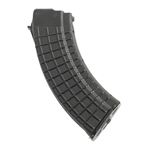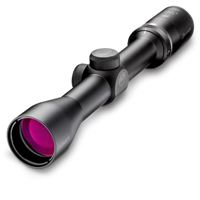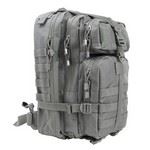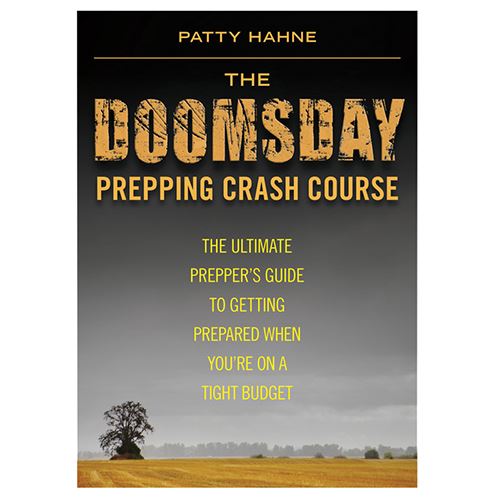When we holster up, an astounding emotional transformation often occurs—we become empowered. We feel defended, secure, and we almost feel immortal. It’s as if the firearm we carry imparts strength and shielding approaching superhero proportions. While somewhat natural, do not underestimate the heroic consequences of your actions.
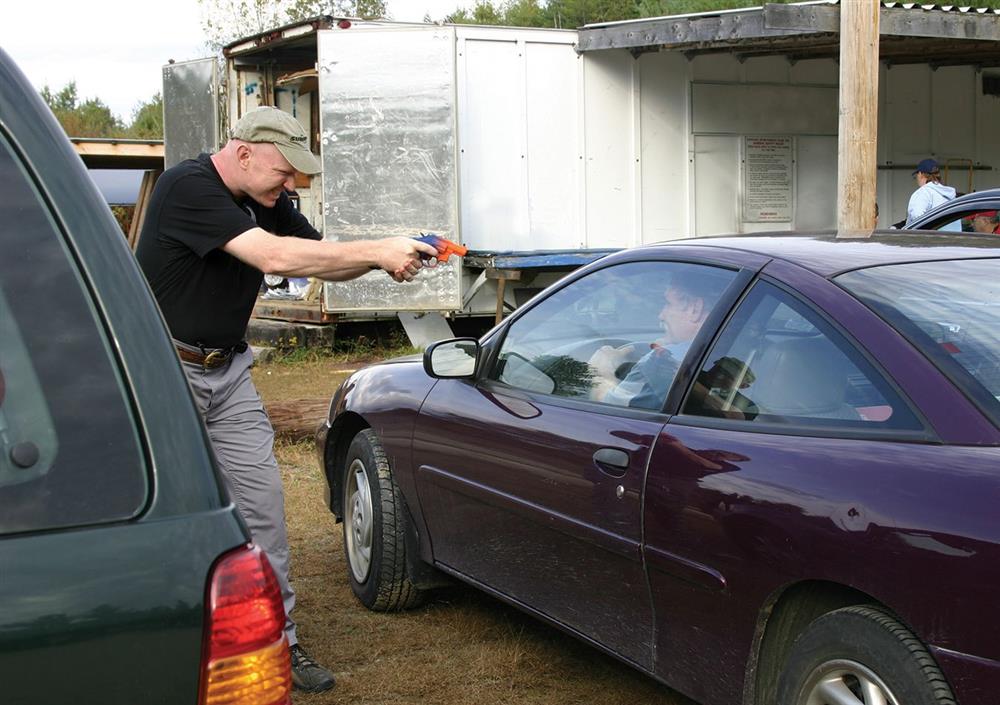
Some of that feeling is justified. As the Old West saying goes; “God made all men. Sam Colt made ’em equal.” The firearm does offer additional defensive capabilities, but caveats exist—you must carry it, train with it, and always maintain situational awareness. Even with all that, being the good people that we are, a firearm is a defensive weapon, meaning that it is not employed until after we are attacked. Being behind the time/power curve is never a good thing and mere possession of a weapon may not always save the day.
This brings me to my next point. Some of the emotional advantages of carrying a firearm may not hold true—worse yet, believing them may increase your danger. The feeling of the security is one of the falsehoods. As I am sure you have heard, “Never do anything with a gun, that you would not do without a gun.”
While that may sound elementary and like plain ole common sense, I can’t tell you the number of times that I have heard people say that they only carry a gun when they think they might need it. While they use that statement as an excuse for not carrying full-time, they completely overlook the absurdity of their own words. If you are going to a place that you think you may need a gun, don’t go! The first rule of winning a gun fight is not to be in one.
I remember the feeling of empowerment many years ago, when I first started carrying a gun. I remember thinking that if I ever saw a robbery, rape, or some other violent crime, I could now stop it because I had a gun. More recently, upon recalling those early ponderances, I realized that I never thought of the potential consequences of those actions. It never came to mind that I could be the one who ends up getting shot. Fantasies are like that—the hero never dies.
While teaching, I have made it a point to ask students if they had similar views, either now or when they first started to carry. A vast majority of them did. I also learned that, like me, most of them did not think of the potential consequences either. We imagine that when hearing a woman scream, we would rush into the alley and force the rapist to stop with our commanding voice and drawn gun. Or, we would grab our gun when we hear the thrashing of the front door, stop the invading bad guys in their tracks, and live happily ever after. It was as if possession of a firearm was akin to unmasking superman’s suit.
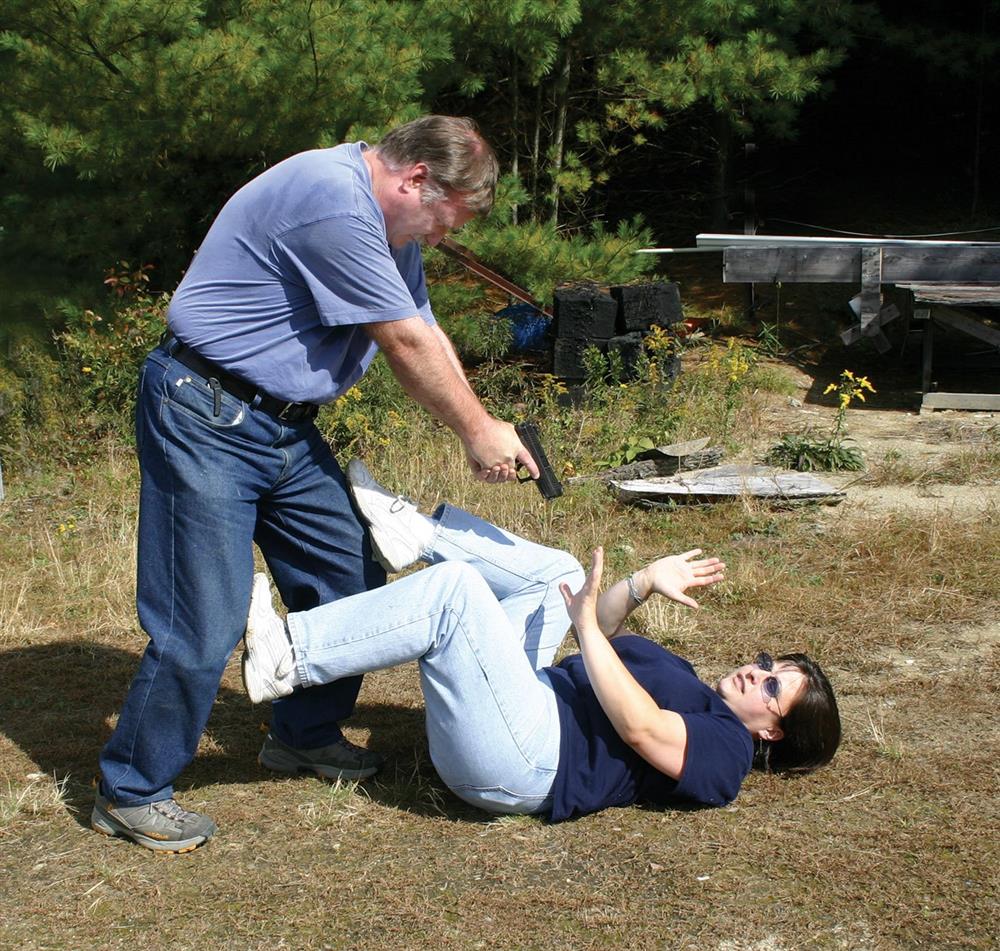
The reality of gunfights is much darker than those heroic musings. Realize that you may get shot yourself—resulting in death or serious wounding. You may be prosecuted and go to jail, even if you believe you were correct in your actions. And, win or lose, it will likely cost you upwards of $100,000 to defend yourself in court.
We rarely hear of citizens coming to the aid of others because of the bias of the media against guns. Even more rare, is hearing about citizens who tried to help others but got hurt themselves. But, two situations in 2005 have brought the issue of dire consequences to the forefront of citizen carry.
In February, Mark Wilson, a good guy with a carry license, died trying to stop the rampage of David Arroyo on the courthouse steps in Tyler, Texas. Carrying a Mak-90 7.62×39 rifle and wearing body armor, Arroyo was shot by Wilson’s .45 but was undeterred because of this body armor. His returning fire killed Wilson who unselfishly tried to save others.
On November 20, Dominick Maldonado opened fire on shoppers with a Norinco Mak-90 rifle at a shopping mall in Tacoma, Washington. An armed citizen, Brendan McKnown, drew his pistol and ordered the gunman to put down his gun. Rather than complying, Maldonado fired four rounds into McKnown. The citizen hero survived, but with devastating wounds. Only time would tell if he would walk again.
Both men can only be described as heroes in the truest sense of the word. While we may debate their tactics, they were selfless in their drive to save others. Both paid severe prices for their bravery.
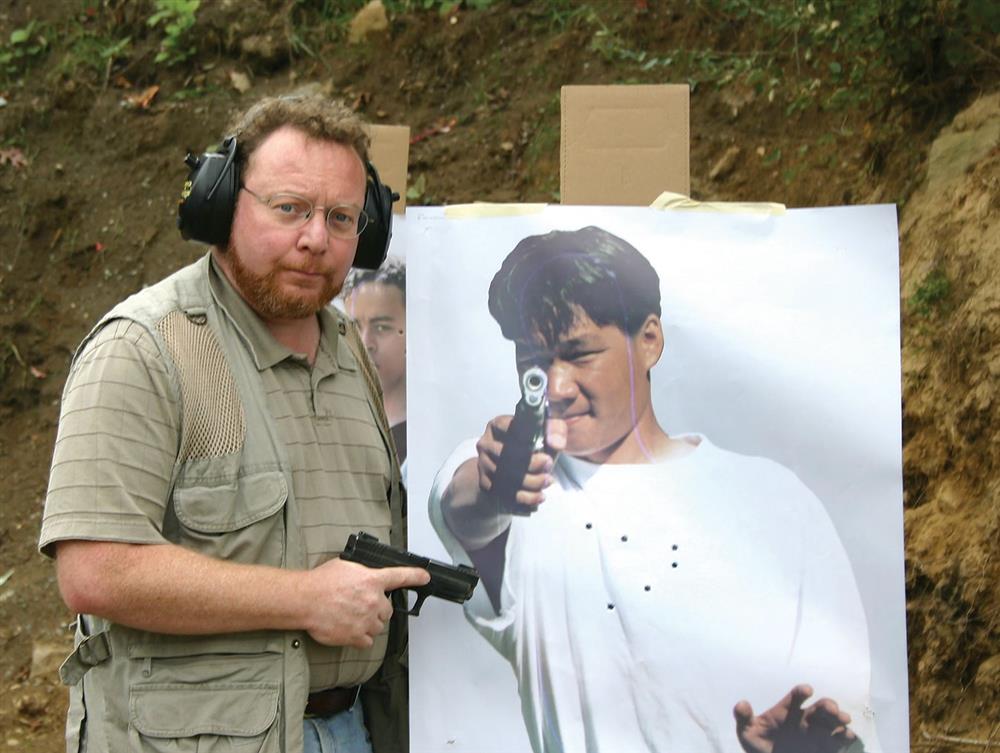
While there is no doubt that we will take those risks for the ones we love, what about strangers? What rights do we have to protect third parties? Is there an obligation to do so? And, most difficult to answer, should we protect others?
The legal answers are easy, but we are not so lucky in the emotional and moral elements of the issue. Legally, most states allow the use of lethal force in the defense of another, so long as the use of force reasonably appears to be justified. Again, the laws of every state vary. A good rule of thumb is to put yourself in the victim’s place and use only equal force.
Use lethal force only if all elements of ability, opportunity, and jeopardy are present. The attacker must actually posses the power to kill or cripple (have a weapon, overwhelming strength, etc.), the attacker must have the opportunity to kill or cripple (close enough to carry out the action without impedance), and the attacker must actually be in the process of attempting to kill or cripple.
In the case of defending a third party, you must be extremely cognizant of the fact that you may not know all the details of the altercation. The person you are about to save may be the assailant. You would have no way of knowing this unless you were witness to the onset of the proceeding altercation, and perhaps not even then.
If you come across a victim being mugged by two men, the men could in fact, be two undercover police officers effecting a legal arrest. If you observe a man with a gun running out of a convenience store, and another follows yelling, “Stop him, he just shot someone,” the running man with the gun may very well be the victim of a robbery seeking help, and the person who yelled to have him stopped may be the criminal seeking to create a diversion for extra escape time. Be sure you know all the facts before using force.
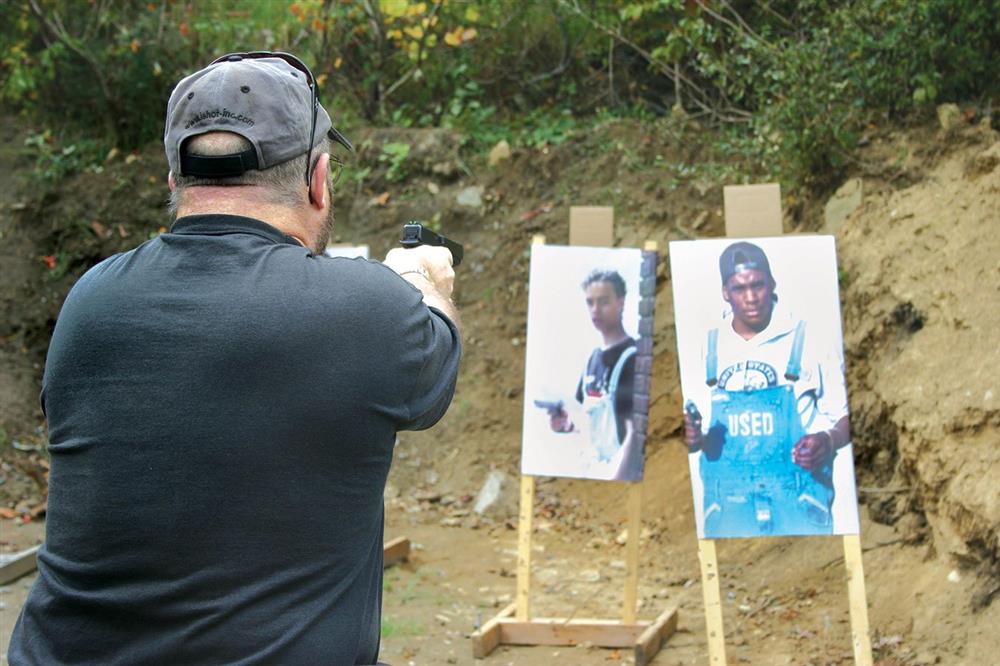
In terms of obligation, you as a private citizen are not required to do anything when you observe a crime happening. there is no legal obligation to protect others. With the legality of the issue settled, now you must decide if you should protect others.
The moral issues of any complex decision are usually far more complicated than the legal ones and this is no exception. Are you willing to risk the consequences for a stranger? Should you stop a violent crime that does not involve you or your loved one and risk your own life and health? Can you let a violent crime happen and do nothing? Is your safety and your family’s wellbeing more important to you than that of a stranger? These are some of the toughest questions you will ever have to answer.
For new gun owners, I suggest that they ask themselves, “Can you take a life?” More to the point, if you, or a member of your family, are placed in mortal danger, can you shoot a human being to save them or yourself? For me, and I suspect the same for most people who carry guns, the answer is easy. Yes, I will defend myself and my family. The question of defending a stranger and putting my own life or family’s well being at risk is much more difficult to answer.
The most eloquent phrasing of these concerns came from Michael de Bethencourt of Northeastern Tactical Schools. He asks his students, “Are you willing to give up your life, freedom, health, and/or wealth for a complete stranger?”
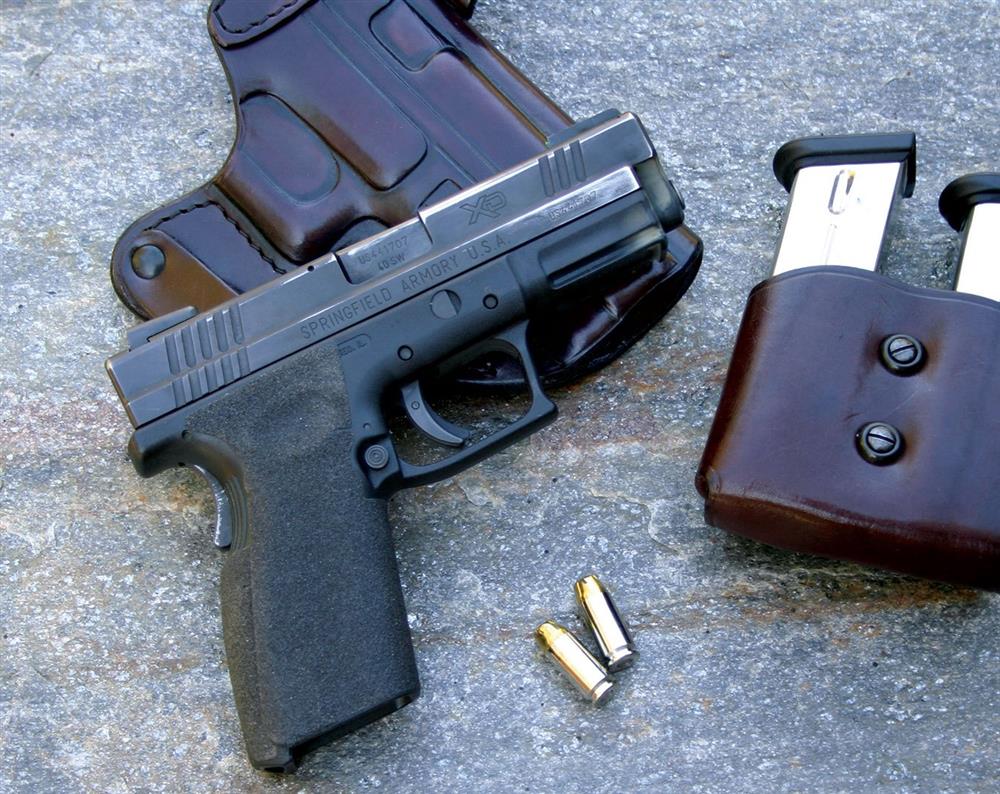
It’s more than a just an issue of selfishness. What will happen to your wife and kids if you get killed? How will they support themselves? How will it affect them emotionally? If you become crippled, you may not be able to earn a living and may become a physical and financial burden on them. How will your being in jail affect them emotionally and financially? Even if you survive and don’t go to jail, will you lose the house trying to pay the legal bills? What will happen if you get severely wounded, go to jail, and lose the house?
This article is not presented to advise or judge, just to layout and explore the issues and facts, so you can make your own decision—hopefully, an informed decision. It is essential that you understand and weigh the situation and the potential consequences before you get involved.
The easy answer, for me as the writer, of course is to say that if the welfare of your family is more important than that of a stranger, keep out of the fight. If you can’t live with yourself knowing that you let a violent crime happen, make sure you know the full situation (who the victim really is) and be sure that all elements of justified lethal force are met.
This issue requires serious forethought. Make your determination before you find yourself in that situation. Let logic and personal convictions determine your actions, not emotions, and make the choice that is right for you.


